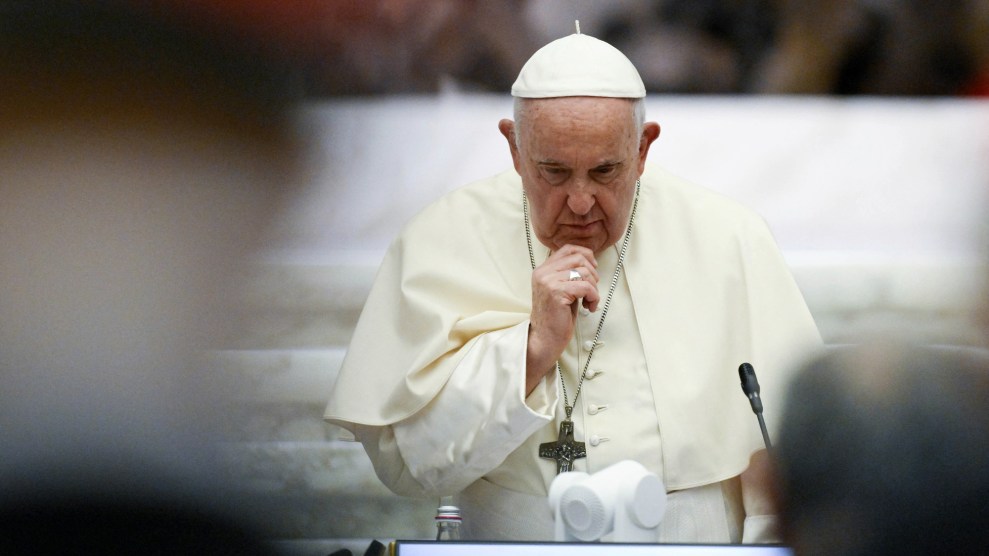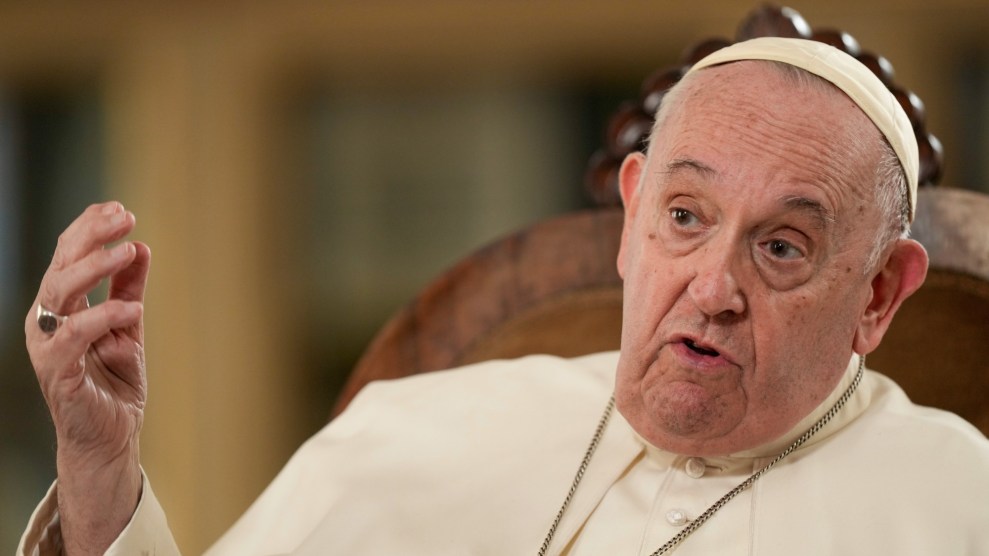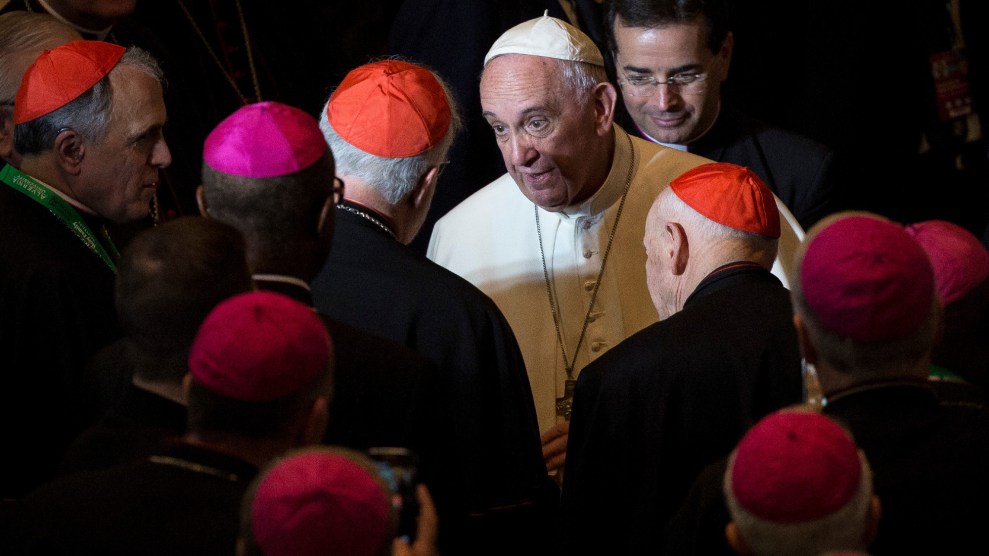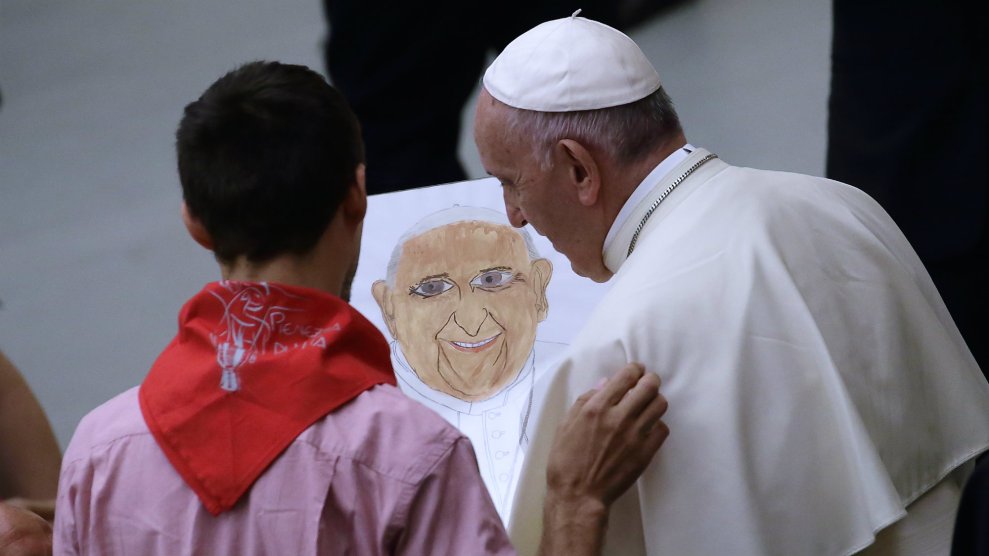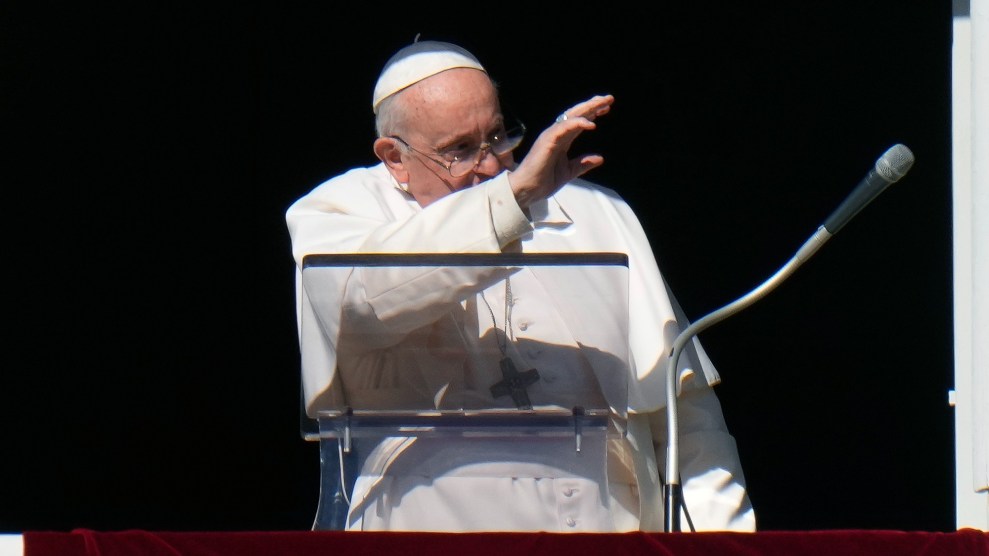
Alessandra Tarantino/AP
Catholic priests can now bless same-sex couples, the Vatican announced on Monday, a notable shift toward creating a more open atmosphere in the Catholic Church.
The move, outlined in a new document, expands on a letter published in October from Pope Francis to conservative cardinals in which he hinted that same-sex unions could receive blessings, as long as they are not considered the same as heterosexual marriages. The document warned against “doctrinal or disciplinary schemes, especially when they lead to a narcissistic and authoritarian elitism whereby instead of evangelizing, one analyzes and classifies others, and instead of opening the door to grace, one exhausts his or her energies in inspecting and verifying.” The text can be read as a response to conservatives, both inside the US and around the world, who dogmatically oppose even tepid inclusion for LGBTQ Catholics.
While the document lists several requirements for the blessings—queer couples can’t invoke the clothing and gestures traditionally associated with a wedding—it states that requests for these blessings should not be denied. The message here from the Vatican, which has been echoed through Pope Francis’ previous rhetoric on the topic, is that although the church still thinks that individuals engaging in extramarital sex and “irregular” unions are living in sin, those individuals should not be barred from having a relationship with God. “Even when a person’s relationship with God is clouded by sin,” the document reads, “he can always ask for a blessing, stretching out his hand to God.”
Monday’s announcement is certain to have global implications for priests and parishioners around the world. Yet the scope is still unclear. As the Associated Press notes, the Vatican did not signal any plans to “regulate details or practicalities about same-sex blessings, or respond to further questions about them, leaving it to individual priests to work out.” It’s also possible that some American Catholics may not even experience these changes due to the staunch ideological divides between local and global doctrine, as well as the fierce opposition some conservative Catholics in the US have toward reform.
I reported in depth on these divides back in October when hundreds of delegates gathered in Rome for the pope’s “Synod on Synodality,” a meeting to discuss the future of the Catholic Church, part of a multi-year process that will culminate in 2024 with Francis’ decisions on topics that could include celibacy and divorce. As expected, the lead-up to October’s synod was filled with warring ideas about how liberal the meeting could get. Some of the contentions reflected a growing push among prominent members of the far-right in recent years, who identify as Catholic, to oppose inclusion for those who have been historically left out of the religion.
As Mother Jones previously reported, American catholicism has splintered as some of the devout entrench themselves in wider conservative politics. Right-wing provocateurs like Milo Yiannopoulos and Steve Bannon notably have moved in Catholic circles saying Pope Francis should be curtailed. Yiannopoulos, who touts a traditionalist form of Catholicism, has been telling anyone who will listen to him, to “make the Vatican straight again” and “make America homophobic again.”
As Catholics await Pope Francis’ eventual discernments next year, many rejoiced over Monday’s news.
“Be wary of the ‘Nothing has changed’ response to today’s news,” Rev. James Martin, a leading advocate for queer Catholics, said in a post. “Yesterday, as a priest, I was forbidden to bless same-sex couples at all. Today, with some limitations, I can.”

